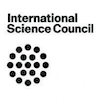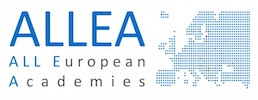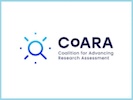Declaration of Academic Merit, Freedom and Integrity
Excellence/ Merit: Scientists are obliged to take the utmost care to use the scientific method in the best way, to conduct research with the highest standards free from conscious bias, to strive for excellence in evaluations and rewards and to make decisions based solely on scientific merit; and to create and maintain inclusive working environments worthy of human dignity for these purposes.
Freedom: Scientists are free to disseminate the results they have reached through sound scientific methods to their colleagues and the public. In the dissemination of scientific results, they are responsible, to the extent they can predict with their free opinion and conscience, to avoid misuse and to try to ensure that they are used for the benefit of humanity as soon as possible. They observe the rights of all stakeholders in the sharing of scientific ideas and the free expression of their views within the framework defined by scientific ethics. It is essential that scientific research is conducted on the basis of ethical responsibilities and does not violate human rights. Scientists take care to ensure that the organizations to which they are invited to become members work in accordance with the principles of Scientific Merit, Freedom and Integrity.
Honesty*: Scientists should publish their findings and methods openly and without distortion, cite all sources and citations clearly and completely, acknowledge their own and others’ contributions and responsibilities meticulously and fairly, and should not cite others as authors who did not contribute to the work. These general principles apply to research articles, reviews, academic publications, as well as to textbooks, popular publications, copyrighted or translated, printed, oral, visual, internet, etc. publications in all media.
Scientists defend the rights of all stakeholders in a way that is not limited to the field of science in which they work. They do not seek personal affinity, interest and reciprocity in cases subject to scientific evaluation such as appointment, promotion, award, etc. In duties such as refereeing and jury membership, they make evaluations based solely on scientific and academic criteria. Scientists take care not to abuse their academic or administrative positions, titles and authorities in any way in their relations with their students, assistants, colleagues, administrators and people outside the scientific community. When serving as referees, jury members, etc., they make evaluations based solely on scientific and academic criteria.
Scientists’ duty of care includes treating each other with equality and respect; preventing relationships based on influence or interest, defamation, intimidation, coercion, harassment, intimidation, coercion, harassment and offensive behavior; preventing discrimination in the use of language and all other behavior; warning those who engage in unethical behavior; and disclosing and following up on unethical behavior.
*In this context, the Academy of Sciences fully adopts and supports the value judgments expressed in the “European Code of Conduct on Integrity in Research” published by the Federation of European Academies (ALLEA) in 2017, and its findings on good practice and dishonest behavior in research.
** Updated with the revised 2023 edition of the Federation of European Academies’ (ALLEA) European Code of Conduct on Integrity in Research.



